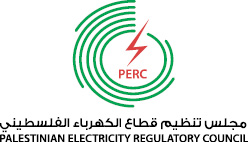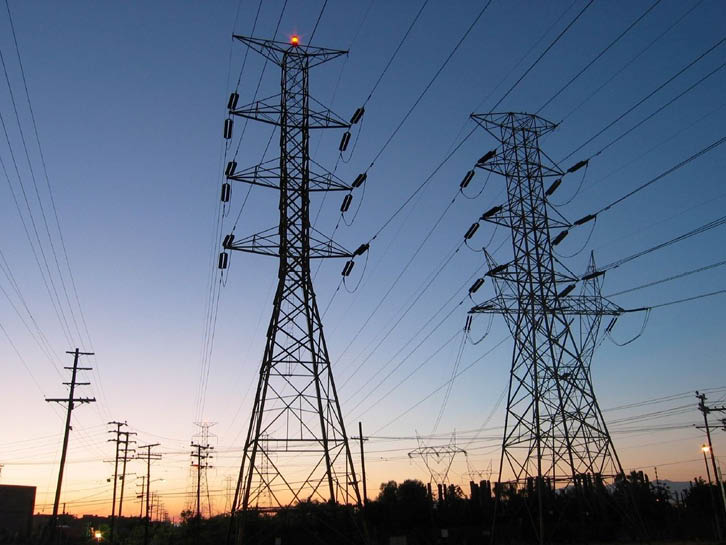
Over the past years, the electricity market in Palestine has witnessed a remarkable development, as can be seen in the issuance of new legislation that has paved the way for investment, preserves the interests of energy producers and distributors, and protects the rights of consumers. Two central governmental institutions operate in the electricity sector: the Energy and Natural Resources Authority, which is mainly responsible for setting policies, and the Palestinian Electricity Regulatory Council, which organizes and monitors the market.
Let us start with a brief introduction to the market that is divided into three main components, namely, the generation, transmission, and distribution of electricity. These activities are managed by specialized companies that are licensed for these purposes. Transmission is managed solely by a governmental company called the Palestinian Electricity Transmission Company (i.e., the national carrier), whereas five distribution companies in the West Bank supply consumers with power. The domestic generation of electricity by local companies, however, is considered modest compared to the imported amounts. (Only about 3 percent of the energy consumed is generated in Palestine through renewable energy companies and Gaza substations.)

Moreover, electricity prices in Palestine are very high compared to other countries in the region and worldwide. The average selling price to consumers is US$0.16/kWh, not including the VAT. Subsidies for the electricity sector are considered high, compared to the volume of the economy and the economic indicators in Palestine. For example, the Palestinian government provided nearly US$50 million as direct and indirect support to the electricity sector in 2019.
The main goal behind establishing the Palestinian Electricity Regulatory Council, as stated in the law, is to monitor the market, strengthen competition, and prevent monopoly. Within this general framework, the legislator assigned many tasks to the regulator. One of the council’s main responsibilities is to resolve disputes between consumers and electricity companies. Thus, we have developed tools to access and communicate with consumers and implemented mechanisms to handle complaints. As a result, resolving disputes has enabled the regulator to monitor the electricity market and collect more data. During the past four years, the calculation of tariffs has become more accurate and reflects the real costs of generation and distribution.
The Palestinian Electricity Regulatory Council monitors the market, strengthens competition, and prevents the forging of monopolies. It is also in charge of pricing, which is important to both consumers and investors.
Moreover, the regulator is responsible for recommending the licensing of electricity companies and monitoring the licensees. In this context, we have issued regulatory decisions that ensure the preservation of the rights of consumers and electricity companies; we have developed the licensing procedures and the generation and distribution of license templates, application forms, and more. In terms of monitoring, we consider the yearly issuance of the performance indicators report to be a valuable milestone. It reflects the performance of the financial, administrative, and technical aspects of electricity companies. (A copy of the performance indicators report can be obtained through the regulator’s website.)
In addition, the Palestinian Electricity Regulatory Council contributes to strengthening the domestic generation of electricity. Even though the various entities working in the electricity sector have different responsibilities, the regulator acts as a key player and contributes to efforts to stimulate investment and increase investor confidence, enticing investors to enter the market. In this context, we have issued interpretative regulations to facilitate investment in renewable energy.
We also continuously review the purchase prices that fluctuate according to changes in the market. According to the performance-indicators report issued by the regulatory council for 2019, the total capacity of electricity generation projects from renewable sources in Palestine amounted to about 36 megawatts, which is 122 percent more than the 2018 figure. It is also worth mentioning that an optimistic scenario suggests that 300 megawatts of renewable energy can be added to the market, which can add an estimated amount of around US$300 million to the Palestinian economy and create many jobs.
Before discussing the challenges, let us elaborate on the policies currently in place regarding investment to increase the domestic generation of energy. These policies can be divided into three main mechanisms. First, the Palestinian Solar Energy Initiative (PSI) aims to purchase energy at a special tariff, supported by the government, from 1,000 projects, installed on rooftops, with a capacity of 5 kilowatts each. The second mechanism is called net metering, whereby any facility owner can install a renewable energy system that covers his/her energy needs and uses the distributor network as virtual storage. Part of the generated energy can go directly to the facility, while the remaining amount is exported to the grid. However, the consumer (the facility owner) still needs to use the grid because the renewable energy system cannot supply the consumer with the required energy at all times (for example, solar systems do not work at night). Thus, the amount the facility consumes from the grid is calculated against the amount of energy exported to the grid. Each month, a percentage of the exported energy is deducted in favor of the distributor, and then an offset is made between the remaining exported amounts and the consumed energy. The third mechanism is related to the construction of energy substations through direct offers or competitive bids. Investors can act as independent power producers (IPPs) and sign power purchase agreements (PPAs) with electricity distribution companies for projects with a capacity of less than 1 megawatt. If the capacity of their projects exceeds 1 megawatt, the PPAs are signed with the Palestinian Electricity Transmission Company that then signs a power sales agreement (PSA) with the distribution company.

Despite all these positive developments, the electricity sector in Palestine faces numerous challenges. The most important of these is the infrastructure, whether related to the electricity distribution network or the transmission network. The Palestinian government and the operating companies in the electricity sector are working on completing the construction and expansion of networks. This can increase the possibility of absorbing more renewable energy and reduce costs for consumers and investors. As a regulator, we have worked to address this issue by standardizing the connection fees (the amount that new consumers pay once as part of their contribution to developing the infrastructure). Nowadays, most consumers pay fixed connection fees, but there are still some categories of consumers who pay according to percentages.
The issue of prices is considered another major challenge, as it affects the Palestinian economy significantly and in many ways. It affects citizens by increasing the value of their monthly electricity bill and impacts Palestinian industries and their ability to compete and export, as energy cost constitutes around 40 percent of production costs. Thus, we expect that increasing domestic energy generation could contribute to lowering prices. However, as a regulator, we are trying to reduce prices through what we do in terms of arranging the electricity market to reduce costs.
The failure of local authorities to join electricity distribution companies constitutes an additional challenge to the electricity market in Palestine. About 114 localities still distribute electricity to consumers (in violation of the General Electricity Law). Most of the local authorities that distribute electric power to consumers cannot afford to acquire the technical and financial capabilities to carry out the electricity distribution activity. But, fortunately, these localities constitute only about 30 percent of the market. We work as a regulator with all relevant authorities to merge these bodies within the electricity distribution companies.
On the other hand, there are challenges that depend on external factors that are beyond the control of the market players. These challenges are mainly related to the policies of the Israeli occupation that affect the ability of Palestinians to use the available lands to build power stations, exploit Palestinian natural gas, connect electricity networks, and conclude agreements to import fuel or energy from other countries in the region.
Finally, it seems that there are quite a number of issues and challenges that need creative solutions. We believe, however, that our openness and transparency will contribute much to the development of the electricity market in Palestine. This can be seen through the public hearings, the reports of the regulator, and our quick response to the issues that affect the electricity companies and consumers. We will continue to work side by side with all partners and stakeholders to advance and develop the electricity sector in Palestine. Where there is a will, there is a way.


